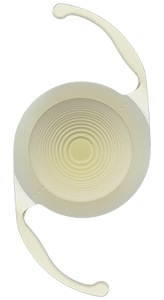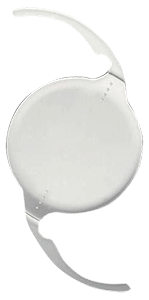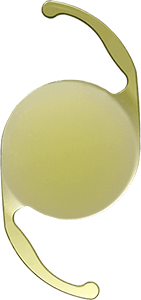Cataract Surgery

Cataract Surgery
Have you ever noticed your vision getting cloudier or blurrier lately? Maybe colors seem less bright, or you find yourself needing more light to read.
If so, you might have cataracts. At Kitsap Eye Physicians, our cataract surgeons have the expertise and experience to help restore your vision through cataract surgery.
What is a Cataract?
Imagine the lens inside your eye is like the windshield of a car. It’s normally crystal clear, letting light pass through and focusing it onto the back of your eye, where a picture is created.
A cataract is a clouding of this lens, like a foggy windshield. This cloudiness happens because proteins in the lens clump together as you age.
Other reasons can cause cataracts to develop earlier in life, but most people develop cataracts with age.
Are There Different Types of Cataracts?
There are different types of cataracts, depending on where the clouding forms in the lens. Some cataracts affect your distance vision more, while others make it harder to see things close up.
What Are the Risk Factors for Cataracts?
Besides aging, other things can increase your risk of developing cataracts. These include diabetes, a family history of cataracts, smoking, sun exposure, and obesity.
What Are the Symptoms of Cataracts?
Cataracts develop slowly, so you might not notice them at first. Here are some signs to watch out for:
Blurry or cloudy vision: This is the most common symptom. It can feel like you’re looking through a hazy window or through a foggy pair of glasses.
Colors seem faded or dull: Cataracts can block some of the light that reaches your eye, making colors appear less vibrant.
Seeing halos around lights: You might see halos or bright rings around lights, especially at night.
Needing brighter light to read: As cataracts worsen, you might need more light for activities like reading or sewing.
Frequent changes in your glasses prescription: If your glasses prescription needs to be changed often, it could be a sign of cataracts.






When Should You Have Cataract Surgery?
Cataract surgery isn’t always necessary right away. If your cataracts are mild and don’t bother you much, you might not need cataract surgery yet.
In fact, some people live with cataracts for years without needing cataract surgery. Here are some things to consider:
How much do your cataracts affect your daily life?
If your cataracts make it hard to drive, read, or do other activities you enjoy, then surgery might be a good option.
Do you have other eye conditions?
Some eye conditions, like macular degeneration, can affect how well you see after cataract surgery. Your eye doctor will consider this when recommending treatment.
How is your overall health?
If you have other health problems, your eye doctor will need to make sure you’re healthy enough for surgery.
What to Expect During Cataract Surgery
Cataract surgery is a very common and safe procedure. Here’s a basic idea of what happens:
Before Cataract Surgery
You’ll meet with your eye doctor to discuss the procedure and any risks or complications. You’ll also likely have a blood test and other tests to make sure you’re healthy enough for cataract surgery.
The Day of Cataract Surgery
Your eye doctor will numb the surface of your eyes, but you’ll be awake during cataract surgery.
The Procedure
The eye doctor makes a tiny incision in the front surface of your eye. The cloudy lens is broken up into tiny pieces using ultrasound waves, like sound waves but too high-pitched for us to hear.
The pieces are then suctioned out. A new, clear artificial lens is implanted inside your eye. This new lens is permanent and will not degrade like the natural lens.
After Cataract Surgery
You might need to wear an eye shield for a short time after cataract surgery, especially when sleeping. Your eye doctor will give you instructions on how to care for your eye as it heals.
Recovery from cataract surgery is usually quick, and most people see an improvement in their vision within a few days.
IOLs Offered at Kitsap Eye Physicians
An IOL, or intraocular lens, is the artificial lens that’s implanted during cataract surgery. At Kitsap Eye Physicians, we offer several different types of IOLs to fit your individual needs.
PanOptix Trifocal IOL

This advanced IOL is designed to help you see clearly at near, far, and intermediate distances, which is about arm’s length. This could mean you could reduce the need for glasses for most activities after cataract surgery.
The PanOptix IOL works by having different zones within the lens that focus light for different distances.
Vivity IOL

Similar to the PanOptix IOL, the Vivity IOL helps you see well at near, far, and intermediate distances. It also offers improved contrast sensitivity means you’ll perceive a wider range of light and dark, making colors appear more vivid and details sharper.
Unlike the PanOptix, the Vivity IOL uses a special design that distributes light throughout the lens, rather than separate zones. This can reduce the halo effect that some people experience with trifocal IOLs.
Toric IOLs

Astigmatism makes your eye shaped more like a football than a round ball, which can blur your vision. A toric IOL can help reshape the way light travels through your eye for clearer vision.
Monofocal IOLs

This is the most traditional type of IOL. It focuses light for one specific distance, typically distance vision.
This means you might still need glasses for reading or close-up work after cataract surgery with a monofocal IOL.
How Do I Choose an IOL?
The type of IOL that’s best for you will depend on your specific needs and preferences. Here are some factors to consider:
Your current vision: What kind of vision problems do you have now? Do you have trouble seeing near, far, or both?
Your lifestyle: How active are you? Do you enjoy activities like reading, sewing, or working on computers?
Your desire for glasses independence: Would you like to minimize your dependence on glasses after cataract surgery?
Your overall eye health: Do you have any other eye conditions that could affect your vision after cataract surgery?
Talk to Your Doctor
The best way to choose the right IOL for you is to talk to your doctor at Kitsap Eye Physicians. They can explain the different types of IOLs in more detail and answer any questions you have.
They will also perform a comprehensive eye exam to assess your vision needs and determine if you’re a good candidate for cataract surgery.
With careful consideration and discussion with your eye doctor, you can choose the IOL that will give you the best possible outcome and help you see the world clearly again.
Are you experiencing symptoms of cataracts? Schedule a cataract evaluation at Kitsap Eye Physicians in Bremerton, WA, today!

